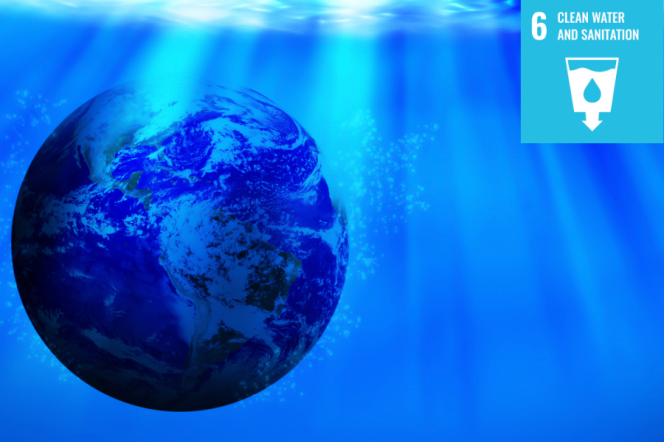Data dodania: 2023-03-15
22 March - World Water Day

The United Nations estimates that water demand will double by 2050 and that more than half of the world's population will be at risk of water shortages.
The problem is the result of climate change and human activities that are causing drought in many areas. Low rainfall and persistently high temperatures lead to excessive evaporation of water from the soil, resulting in soil depletion and reduced biodiversity.
Climate change challenges for cities
Climate change is also increasing the frequency of severe meteorological phenomena such as torrential rains, which pose a challenge to cities. The hardening of large areas and the reduction of green spaces can lead to flooding, with the risk of sewage pollution overflowing into water bodies. As part of the international NOAH project, researchers at Gdańsk Tech have developed a system that uses intelligent drainage systems to reduce the flow of pollutants from urban areas into water bodies through so-called overflows.
The concept of sponge cities
One solution that can mitigate the effects of periodic droughts and sudden downpours in urban areas is the concept of sponge cities. This is the idea of a green city that is able to harvest rainwater through small-scale retention built into the landscape. Rain gardens, green roofs and walls, drainage surfaces such as
permeable paving or porous asphalt, ponds or artificial lakes can collect periodic excess water and then gradually release it back into nature.

On the campus of Gdańsk University of Technology, we can find elements of small-scale retention such as rainwater harvesting tanks or a flower meadow between the Faculty of Mechanical Engineering and Ship Technology and the Faculty of Electronics, Telecommunications and Informatics. There are also plans to create a rain garden on campus.
Our university actively seeks to minimise its impact on the environment by implementing environmentally friendly solutions. As part of this, we have installed 14 rainwater tanks, each with a capacity of 360 litres. They can harvest approximately 7,500-10,000 litres of water per year for the maintenance of the campus gardens. In this way, we are reducing our drinking water consumption and promoting sustainable resource management.
The table shows a list of Gdańsk Tech's main publications from 2017 to 2022 on SDG 6 - Clean water and sanitation.

-
2026-01-23
Sport bez barier: wystawa fotografii na PG

